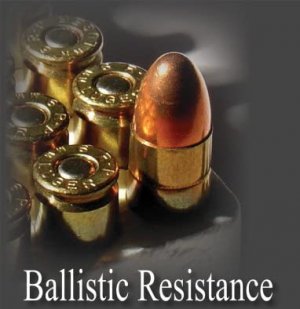Military
Ballistic Resistance Turkey - Turkish Manufacturer

Ballistic resistance refers to the ability of a material or object to withstand the impact of a projectile or bullet. Materials that are ballistic resistant are designed to absorb and dissipate the energy of a projectile upon impact, rather than allowing it to pass through. These materials are commonly used in the construction of body armor, military vehicles, and other protective equipment that is designed to protect against gunfire or other high-velocity projectiles.
There are several factors that can affect the ballistic resistance of a material, including its thickness, density, and structural integrity. In general, materials that are thicker, denser, and more structurally sound will be more resistant to bullets and other projectiles. However, it is important to note that no material is completely bulletproof, and the level of protection provided by a ballistic resistant material will depend on the caliber of the projectile, the range at which it is fired, and the angle at which it strikes the material., or private companies. They may also be used by law enforcement agencies and forensic experts to examine evidence from crime scenes and other incidents.
There are several different methods that are commonly used to test the ballistic resistance of materials, including laboratory testing and field testing. Laboratory testing typically involves firing projectiles at a sample of the material under controlled conditions, such as at a specific distance and angle, and measuring the extent of the damage caused by the projectile. Field testing, on the other hand, involves testing the material under more realistic conditions, such as in a simulated combat environment.
One of the most widely used standards for evaluating the ballistic resistance of materials is the National Institute of Justice (NIJ) Standard 0101.06, which establishes a series of performance levels for body armor. This standard defines five levels of protection, ranging from Level IIA (the least resistant) to Level IV (the most resistant), based on the caliber and type of projectile that the armor is designed to protect against.
In addition to body armor, ballistic resistant materials are also used in a variety of other applications, including bullet-resistant glass, armored vehicles, and bulletproof vests. These materials are typically designed to provide protection against specific threats, such as handgun rounds, rifle rounds, or armor-piercing rounds, and are tested using appropriate methods and standards.
Ballistic Resistance Turkey - Turkish Manufacturer
Ballistic Resistance Turkey - Turkish Manufacturer
Ballistic resistance refers to the ability of a material or object to withstand the impact of a projectile or bullet. Materials that are ballistic resistant are designed to absorb and dissipate the energy of a projectile upon impact, rather than allowing it to pass through. These materials are commonly used in the construction of body armor, military vehicles, and other protective equipment that is designed to protect against gunfire or other high-velocity projectiles.
There are several factors that can affect the ballistic resistance of a material, including its thickness, density, and structural integrity. In general, materials that are thicker, denser, and more structurally sound will be more resistant to bullets and other projectiles. However, it is important to note that no material is completely bulletproof, and the level of protection provided by a ballistic resistant material will depend on the caliber of the projectile, the range at which it is fired, and the angle at which it strikes the material., or private companies. They may also be used by law enforcement agencies and forensic experts to examine evidence from crime scenes and other incidents.
There are several different methods that are commonly used to test the ballistic resistance of materials, including laboratory testing and field testing. Laboratory testing typically involves firing projectiles at a sample of the material under controlled conditions, such as at a specific distance and angle, and measuring the extent of the damage caused by the projectile. Field testing, on the other hand, involves testing the material under more realistic conditions, such as in a simulated combat environment.
One of the most widely used standards for evaluating the ballistic resistance of materials is the National Institute of Justice (NIJ) Standard 0101.06, which establishes a series of performance levels for body armor. This standard defines five levels of protection, ranging from Level IIA (the least resistant) to Level IV (the most resistant), based on the caliber and type of projectile that the armor is designed to protect against.
In addition to body armor, ballistic resistant materials are also used in a variety of other applications, including bullet-resistant glass, armored vehicles, and bulletproof vests. These materials are typically designed to provide protection against specific threats, such as handgun rounds, rifle rounds, or armor-piercing rounds, and are tested using appropriate methods and standards.


